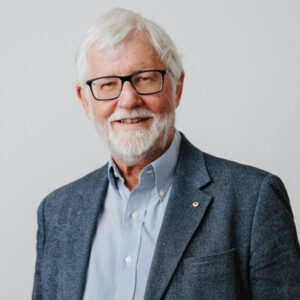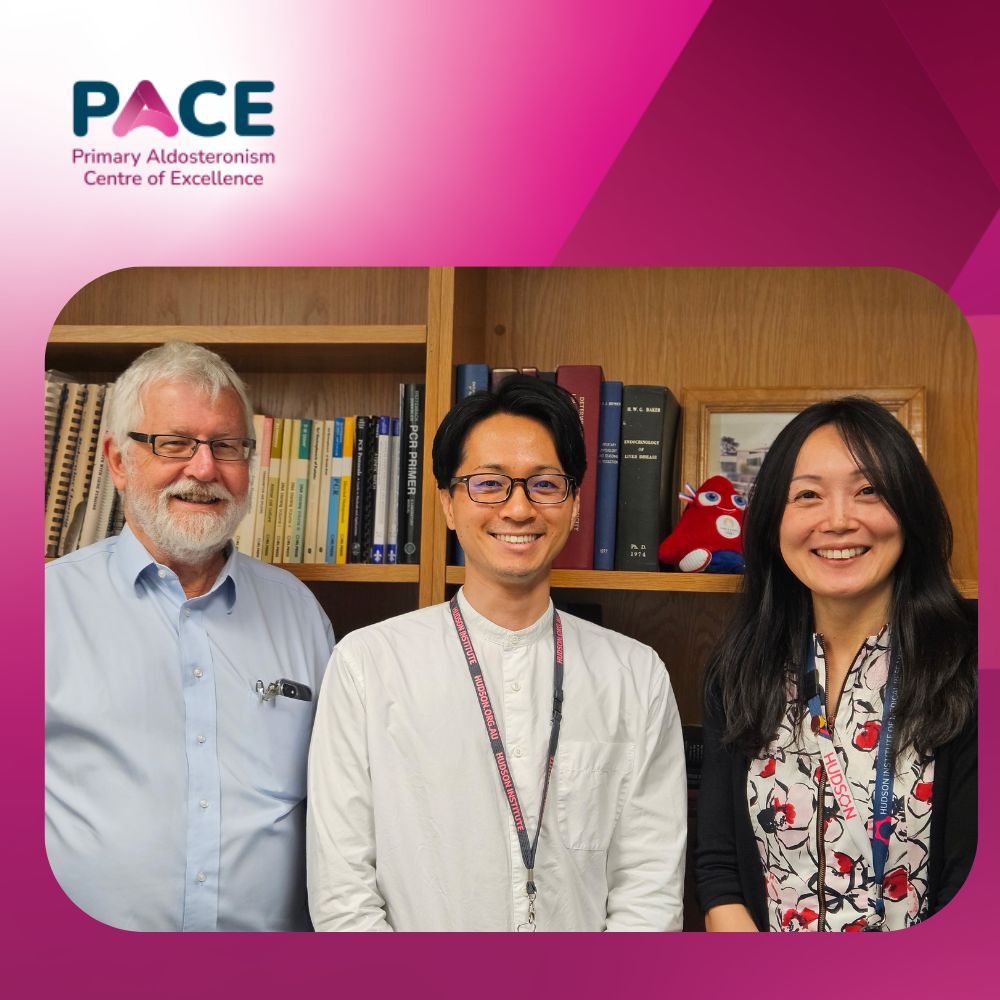Donation powers Hudson Institute primary aldosteronism research
By Rob Clancy, staff writer

An international campaigner to improve standards of care for patients with Primary Aldosteronism (PA) has sadly passed away, but not before making a major donation to Hudson Institute’s pioneering work in the field.
Dr Marianne Leenaerts, Co-Founder and Co-Director of the Primary Aldosteronism Foundation (USA), donated AU$90,000 to help advance the work being done at Hudson Institute on PA by Associate Professor Jun Yang and her team.
The valuable donation will fund a project, co-led by A/Prof Yang and Dr Katrina Long (Monash University), to better understand the barriers and enablers of a timely diagnosis of PA. Their team will Interview clinicians from diverse disciplines of endocrinology, nephrology, cardiology and general practice, to gain an in-depth understanding of their approaches to diagnosing PA.
This project stems from a five-year collaboration between A/Prof Yang and the PA Foundation, specifically targeting the lack of information on why doctors find it challenging to test for PA.
Primary aldosteronism donation has worldwide benefits
Dr Leenaerts, who lived with PA for many years, stepped back from her official roles with the Foundation in recent times as she battled lung cancer.
Her career was a fascinating one and as she entered her final years she was determined to find more ways of contributing to improved standards of care for patients with PA worldwide.
Born in Belgium and later moving to the US, then Canada, Dr Leenaerts said living every day as a learning moment afforded her the privilege of a very full life, “…from touring with the greatest jazz legends to working with the UN and earning a PhD at the age of 50.”
“I appreciated every bit of it, big and small. Life’s circumstances gave me the opportunity to be of service and to meet remarkable individuals, not only for the brilliance of their minds, but more importantly, of their hearts.”
“Along with acquiring a doctorate degree came the unexpected diagnosis of primary aldosteronism. In retrospect, I had unknowingly harboured the disease most of my life,” she said.
She experienced the challenges of living with PA, both from a personal perspective and through others in her work with the Foundation.
Challenges of living with PA
“The issues around detection and treatment of PA are plenty, they’re multiform and they’re across the entire healthcare sector,” she said.
“We at the foundation follow over 4,00 patients with PA around the world and every one of them goes through the same painful hoops, to the point where some even lose their professional and social life or lose their life altogether, to a disease that could very well be managed but isn’t.”
“Whenever someone like Jun Yang and an organisation like Hudson Institute demonstrates that it’s possible to do the right thing, I think it’s magnificent and for patients, hope comes back.”
“This is a condition that’s been known about for 65 years but to this day, only one class of drugs is available.”
Jun Yang and her colleague in Hudson’s Centre for Endocrinology and Metabolism, Professor Peter Fuller, have established the NHMRC Primary Aldosteronism Centre of Research Excellence (PACE), which is set to be a global leader in PA research.
They both paid tribute to Dr Leenaerts, expressing a wish for PACE to be the type of facility that she spent many years hoping for.
“While the newly-created centre of excellence primarily serves Australians, I believe it is paramount for PA, and worthy of promotion beyond Australian borders,” Dr Leenaerts recently said.
“It is the only centre solely dedicated to PA. Everywhere else, PA is lumped with other adrenal disorders or hypertension, while it is a systemic disease that demands focus for itself.”
A/Prof Yang says for people living with PA that means the medical community will be better informed about this condition, enabling them to diagnose it sooner and offer the most advanced treatment.
Revolutionising PA diagnosis and management
Prof Fuller adds that: “We aim to revolutionise the diagnosis and management of hypertensive patients, improve health outcomes by reducing the burden of hypertension and chronic disease, build enduring research and training capacity, and cement Australia’s position as a world leader in tackling this public health challenge.”
The generous donation from Dr Leenaerts is set to have a lasting positive impact on Hudson Institute’s work on primary aldosteronism, with flow-on effects for millions of people worldwide.
PA Facts
- Primary Aldosteronism (PA), or Conn Syndrome, is the most commonly under-diagnosed cause of high blood pressure affecting millions of people.
- Approximately 600,000 Australians are estimated to have PA and most of them don’t know it.
- PA is a form of high blood pressure caused by overactive adrenal glands that make too much aldosterone, a salt-retaining hormone, which leads to high blood pressure as well as heart and kidney damage.
- One in 10 patients with hypertension have PA but it is often misdiagnosed as conventional hypertension – less than one in 100 patients are diagnosed correctly. As a result, patients are given the wrong treatment and suffer preventable heart disease or stroke.
- Correctly diagnosed, PA and the consequent hypertension can be treated or cured with surgery.
In this article
About Hudson Institute
Hudson Institute’ s research programs deliver in three areas of medical need – inflammation, cancer, women’s and newborn health. More
Hudson News
Get the inside view on discoveries and patient stories
“Thank you Hudson Institute researchers. Your work brings such hope to all women with ovarian cancer knowing that potentially women in the future won't have to go through what we have!”








